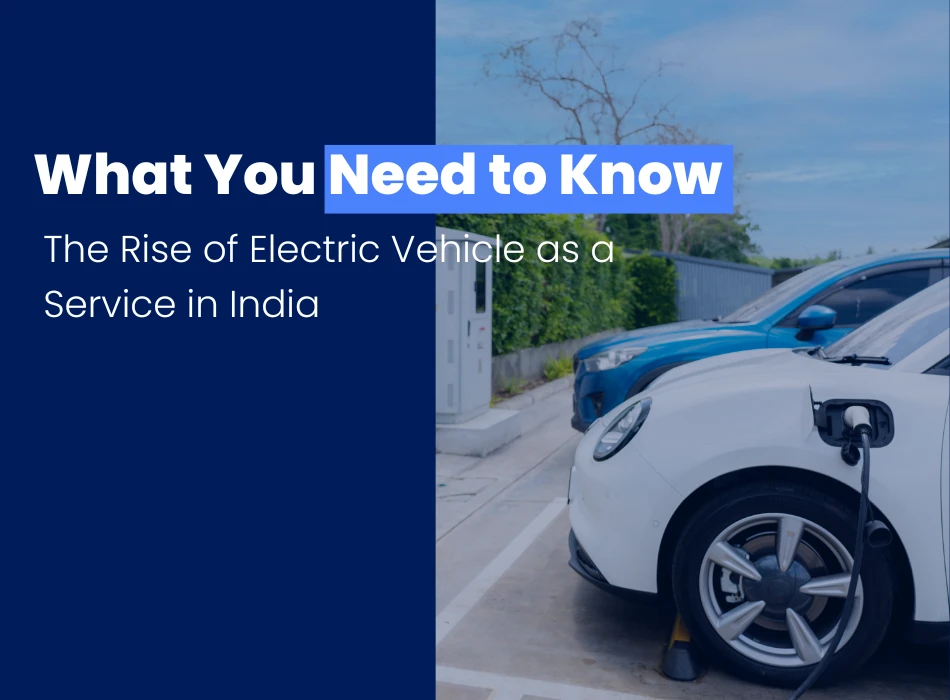The Rise of Electric Vehicle as a Service in India: What You Need to Know
Discover the rise of Electric Vehicle as a Service (EVaaS) in India. Explore benefits for individuals and businesses, various models, and the future of sustainable transportation.

Electric Vehicle as a Service (EVaaS) is rapidly gaining traction in India, driven by the growing popularity of electric vehicles (EVs) and the increasing demand for sustainable transportation solutions. This innovative model allows users to access electric vehicles without the burdens of ownership, providing numerous benefits tailored to modern mobility needs.
What is EVaaS?
Defining EVaaS
EVaaS refers to a model where electric vehicles are offered as a service rather than being owned outright. This can include various options such as subscriptions, leasing, and vehicle sharing. Unlike traditional car ownership or rental services, EVaaS offers flexibility and convenience tailored to users’ needs.
Difference from Traditional Models
- Ownership vs. Access: Traditional car ownership comes with high upfront costs and long-term commitments. In contrast, EVaaS allows users to access vehicles without the financial burden of ownership.
- Subscription Models: Subscription services provide an all-inclusive package covering insurance, maintenance, and charging, making it hassle-free. For instance, Hyundai’s Evolve+ program lets users try an electric vehicle like the Ioniq 5 for $899 a month, bundling all costs into one payment.
Various EVaaS Models
- Subscription Services: Users can choose from different vehicles and switch as needed. This model is ideal for those who may not require a car every day or want to explore various models.
- Leasing Options: Longer-term contracts still offer flexibility. Businesses can lease fleets of electric vehicles without committing to outright purchases.
- Car Sharing: Users can rent vehicles for short periods without any long-term commitment. Platforms like Zoomcar and Revv are exploring this model with electric options.
Benefits of EVaaS
For Individuals:
- Lower Upfront Costs: No hefty down payments required. This is especially beneficial for young professionals or first-time car buyers who may hesitate to invest heavily in a vehicle.
- No Maintenance Worries: Maintenance is typically included in the service, meaning users don’t have to stress about unexpected repair bills or service schedules.
- Flexibility in Usage: Switch vehicles based on needs—perfect for families or individuals with varying requirements. For instance, you might need a compact car during the week but prefer an SUV for weekend getaways.
- Environmental Benefits: Contributes to reducing carbon footprints. By opting for electric vehicles, individuals can play a part in combating climate change.
- Potential Tax Benefits: Users may benefit from government incentives for using electric vehicles, such as tax rebates or deductions that can further reduce costs.
For Businesses:
- Reduced Operational Costs: Lower fuel and maintenance expenses translate to cost savings. Electric vehicles generally have lower running costs compared to their gasoline counterparts.
- Improved Brand Image: Companies adopting EVs can enhance their sustainability credentials. Being seen as environmentally responsible can attract eco-conscious consumers.
- Enhanced Employee Satisfaction: Offering modern mobility solutions can boost employee morale. Employees appreciate companies that invest in sustainable practices and provide convenient transportation options.
- Simplified Fleet Management: End-to-end services streamline operations and reduce management headaches, allowing fleet managers to focus on core business activities rather than vehicle upkeep.
Challenges and Considerations
- Range Anxiety: Many potential users worry about the distance an EV can travel on a single charge. However, EVaaS providers are addressing this by ensuring robust charging infrastructure and offering battery swapping options that allow users to quickly exchange depleted batteries for fully charged ones.
- Charging Infrastructure: A comprehensive network of charging stations is crucial for the success of EVaaS. Companies like myTVS are integrating charging solutions into their service offerings, making it easier for users to find charging points while on the go.
- Regulatory Framework: Government policies play a significant role in promoting EVaaS by providing incentives and support for both consumers and businesses. Initiatives like FAME II (Faster Adoption and Manufacturing of Electric Vehicles) aim to boost electric mobility through subsidies and infrastructure development.
- Cost-effectiveness: While there may be initial costs associated with transitioning to EVaaS, the long-term savings on fuel and maintenance make it a financially viable option compared to traditional vehicle ownership. Analyzing total cost of ownership (TCO) shows that many businesses could save significantly over time by switching to electric fleets.
The Future of EVaaS in India
The potential growth of EVaaS in India is immense. The market is projected to expand significantly, with estimates suggesting it could reach $4.71 billion by 2030 at a CAGR of 32.39%. Emerging trends include:
- Technological Innovations: Advanced digital platforms are enhancing user experiences by allowing easy subscription management through mobile apps. Features like real-time vehicle tracking and automated billing make using these services seamless.
- Impact on Urban Mobility: As cities become more congested, EVaaS can help alleviate traffic issues while promoting cleaner air through reduced emissions. Integrating public transport with shared electric mobility solutions could revolutionize urban commuting.
Conclusion
In summary, the rise of Electric Vehicle as a Service in India presents exciting opportunities for individuals and businesses alike. With numerous benefits such as lower costs, flexibility, and environmental advantages, exploring this model further is worthwhile. As we move toward a more sustainable future, embracing EVaaS could be a key step in contributing to greener urban mobility solutions. So why not consider your options? The future is electric!